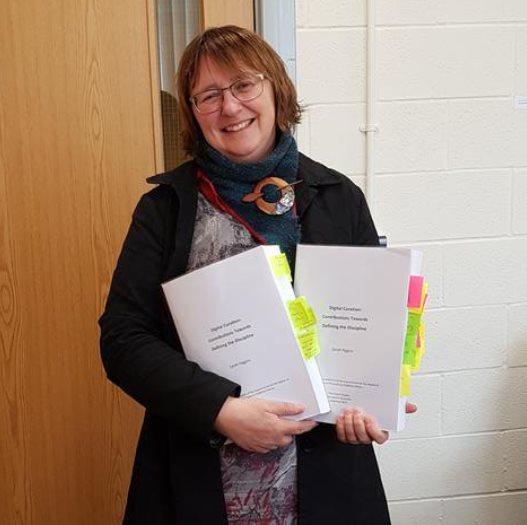This PhD by Published works brings together ten published papers and a narrative concerning the context of their development and publication.
Original contributions to knowledge about digital curation has been made in eight key areas:
- The examination and analysis of the professional and organisational processes that supported digital curation’s emergence as an academic discipline;
- Characterisation of the professional function of digital curation in relation to libraries, archives and museums, the traditional dominant sub-disciplines of information science;
- Evaluation of the applicability of current archival theory to the digital paradigm;
- Development of a conceptual model (the DCC Curation Lifecycle Model) to both underpin digital curation as an academic discipline and to inform professional implementation;
- Empirical evidence of the applicability of the conceptual model to curating research datasets in the professional dimension;
- Application of the conceptual model to an advisory framework for professional implementations;
- Specific best practice guidelines for curating data in a custodial context;
- Analysis of digital curation curriculum competency requirements and subsequent development of academic curricula.

These researches have enabled empirically evidenced conclusions which have consequences for digital curation as a professional and academic discipline.
- Iterative professional processes supported by systematic funding initiatives enabled the disciplinary space occupied by digital curation to be identified, explored and developed;
- This disciplinary space transcends the traditional boundaries of the information science disciplines libraries, archives and museums, due to the unique curation needs of information manifested digitally;
- The digital paradigm disrupts the accepted theoretical principles underpinning professional practices in archival science;
- Conceptual modelling in digital curation builds a delineated theory that can drive an academic professional feedback loop;
- A conceptual model that accommodates the application of digital curation theory in multiple contexts capacitates professional practice and knowledge development;
- Higher education in digital curation can be delivered as part of the curriculum for traditional information science disciplines but its status as a sub-meta-discipline means that dedicated curricula may be more applicable;
- Higher education in digital curation requires both theoretical and experiential knowledge.
The overarching conclusion made from the combined researches is that digital curation, like information science, is a meta-discipline which sits above and has reach into all other academic disciplines. However, as information is increasingly manifested digitally by default digital curation is also a meta-discipline of information science and all its sub-disciplines. This conclusion has implications for practice, research and education in digital curation.






























































































































